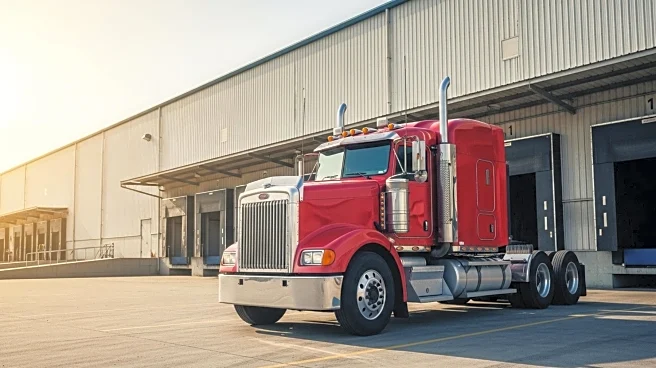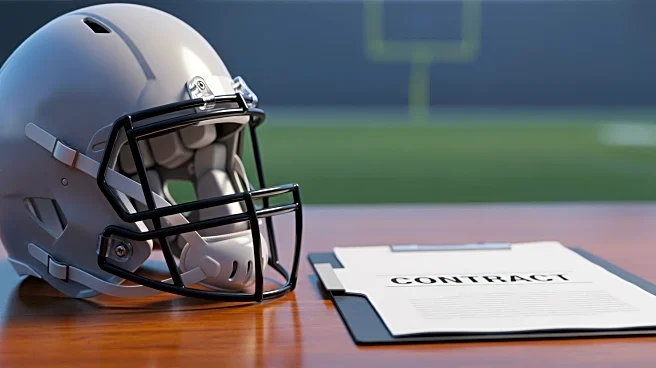What's Happening?
Trucking labor unions have played a pivotal role in shaping the freight industry in the United States. Since the establishment of the first trucking union in 1901, unions have advocated for drivers' rights, better wages, and improved working conditions. The International Brotherhood of Teamsters (IBT) is one of the largest unions representing truck drivers today. Historically, unions have organized strikes to pressure employers for better pay and benefits. These strikes have been significant in the trucking industry's evolution, impacting labor legislation and civil rights. Despite a decline in union membership, major unions continue to influence the industry.
Why It's Important?
Trucking unions are crucial in negotiating labor contracts that affect driver wages, job security, and working conditions. They provide a collective bargaining power that individual drivers lack, potentially leading to more stable employment and better benefits. However, union membership comes with costs, such as dues and adherence to union rules. For fleets, unions can offer compliance assistance and improved driver relations, but they also pose challenges like increased labor costs and reduced operational flexibility. The current state of trucking unions reflects broader trends in labor relations and industry dynamics.
What's Next?
The future of trucking unions may involve navigating challenges such as declining membership and industry skepticism. Unions will likely continue advocating for drivers' rights, but they may need to adapt to changing industry conditions and political leanings. The impact of deregulation and larger companies on union power remains a concern. As the industry evolves, unions may focus on addressing emerging issues like automation and environmental regulations. The role of unions in shaping labor policies and industry standards will be critical in the coming years.










